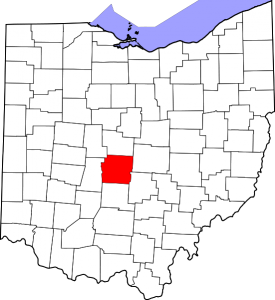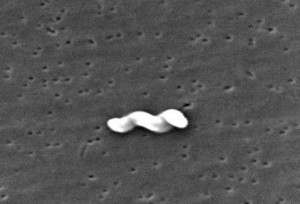Ohio agricultural officials issued a health alert Friday for unpasteurized raw milk and raw milk products from Sweet Grass Dairy’s herd share, due to contamination with Campylobacter. Sweet Grass Dairy is located in Knox County at 6049 Bryant Rd., Fredericktown, OH 43019.

An investigation by the Ohio Department of Agriculture (ODA) and the Ohio Department of Health (ODH) of illnesses in Franklin County and later confirmation of a connection between the illnesses and raw milk from Sweet Grass Dairy prompted the alert.
What is Campylobacter?
It is a bacterium that can be found in chicken, in healthy cattle, birds, raw milk, and contaminated water. Most cases of campylobacteriosis are associated with eating raw or undercooked poultry meat or from cross-contamination of other foods by these items. Infants may get the infection by contact with poultry packages in shopping carts. It is also possible to get infected from the feces of an infected pet cat or dog. It is the leading cause of bacterial diarrhea in the United States, more than Salmonella and Shigella combined.
It doesn’t take a lot of this organism to get you ill. In some studies it showed that as little as 500 organisms can cause disease in some individuals.
Campylobacter jejuni, the species most often implicated in infection, causes diarrhea, which may be watery or sticky and can contain blood and white blood cells. Other symptoms often present are fever, abdominal pain, nausea, headache and muscle pain. The illness usually occurs 2-5 days after ingestion of the contaminated food or water. Illness generally lasts 7-10 days, but relapses are not uncommon (about 25% of cases).
There can be complications associated with campylobacteriosis; they include arthritis and neurological disorder Guillain-Barré syndrome. It is estimated that the latter is seen in one out of every 1000 cases of Campylobacter.

Most cases of Campylobacter are self-limiting and do not require treatment. However, severe cases can be treated with antibiotics to shorten the length of the disease.
People can prevent infection by only consuming pasteurized milk and milk products. Pasteurization is the process in which milk is heated briefly to kill any pathogenic bacteria that might be present. Raw milk has not been pasteurized to kill pathogenic bacteria that can cause illness and is not available for sale in Ohio retail stores.
Related:


2 thoughts on “Campylobacter prompts health alert for raw milk in Ohio”